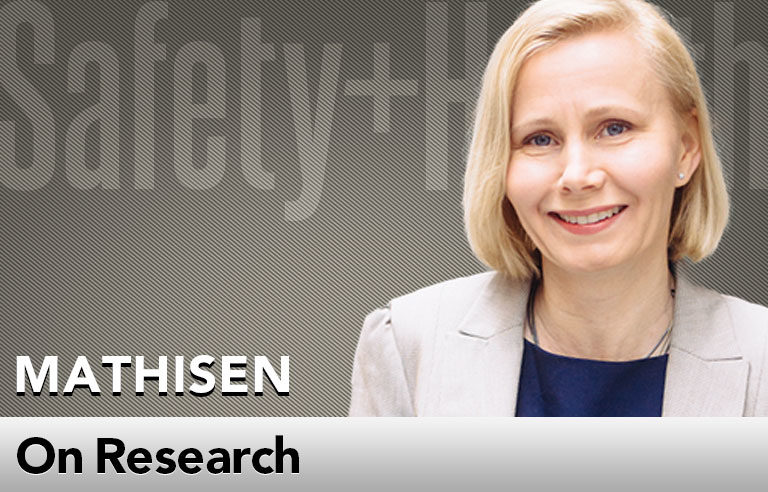On Research: ‘Safety voice’: The importance of co-worker support
Journal of Safety Research contributors talk about their work

What’s your study about?
The general topic of the study is about “safety voice,” which means you feel empowered to raise concerns if you see something is wrong or unsafe. And, of course, this is important to prevent incidents, injuries and even catastrophes. And what we actually see, and several studies have identified, is that more than half of employees don’t actually voice concern when they see something, so this is quite worrying. And that’s one of the reasons we went into this topic – to look for reasons why people don’t voice their concern. This is called “safety silence.”
For this study, we actually developed a scale to measure safety climate behavior. We used the term “climate” because this is about a work environment where it’s possible to voice your concerns. We tried to grasp the main elements of the reasons that are hindering or encouraging safety voice behavior
What drove your interest in studying this topic?
I have a background in the energy industry in Norway. I had roles within EHS and human resources, as well as some advisory and leadership roles. And what I actually observed when I was in these roles was that there was a difference between departments related to their attitudes when it comes to safety voice
How does the ‘safety voice climate’ tool directly affect workers?
Employers can use the scale as part of a work environment survey. Or, it could be used in other types of settings. But by using this tool, it can create awareness about this topic and create discussions.
Did anything about the results surprise you?
Absolutely. What we actually found when we looked into the associations between safety voice climate and safety voice behavior was a significant relationship only between one of the two factors we studied: colleague support and leaders’ attitudes. There was a significant relationship between the former, but not the latter, which is quite surprising. But how we think about that is that maybe colleagues are more important in many ways than the leaders, because your colleagues – you spend your time with them on a daily basis. What they think about you is maybe more important than what your leader thinks.
Did the study have limitations?
This study was conducted in the Norwegian petroleum industry and, of course, Norway has one culture; other countries have multiple cultures. So there could be cultural aspects here that need to be addressed in studies from other countries
The full study is available at ScienceDirect.
Post a comment to this article
Safety+Health welcomes comments that promote respectful dialogue. Please stay on topic. Comments that contain personal attacks, profanity or abusive language – or those aggressively promoting products or services – will be removed. We reserve the right to determine which comments violate our comment policy. (Anonymous comments are welcome; merely skip the “name” field in the comment box. An email address is required but will not be included with your comment.)

